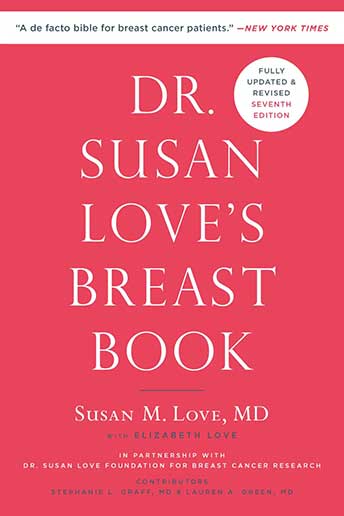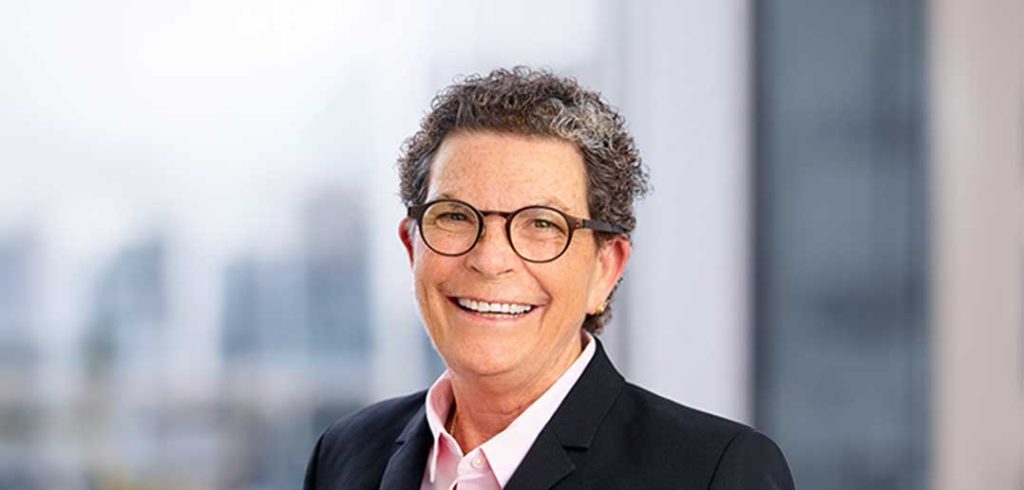“It became very clear to me, very quickly, that women were not being very well treated,” she told PBS in 2013, adding that “what started as a career really was going to be a mission.”
“I think we can be the generation that solves breast cancer, and that’s what drives me,” she said.
It drove her to co-author Dr. Susan Love’s Breast Book, initially published in 1990 and often called the bible for women with breast cancer, and to lead the National Breast Cancer Coalition and the Dr. Susan Love Foundation for Breast Cancer Research. Next month, the seventh edition of her book will be published.
The publication comes about four months after the game-changing surgeon, who was also an advocate for LGBTQ+ rights, died of recurrent leukemia on July 2 in Los Angeles. She was 75 years old.
A Unique Perspective
Born in Long Branch, New Jersey, in 1948, Love attended college in Maryland for two years and considered becoming a nun. She entered the convent of the School Sisters of Notre Dame in New York City but left after a few months and enrolled at Thomas More College, Fordham’s undergraduate school for women from 1964 to 1974. She earned a bachelor’s degree from Fordham in 1970 and went on to earn an M.D. from the State University of New York Downstate Medical School.

Love completed her surgical residency at the former Beth Israel Hospital in Boston, but her early career was affected by blatant sexism. “I finished, and I was chief resident, and then nobody offered me a job,” she told UCLA in 2018. “Usually, when you’re a chief resident at one of the Harvard hospitals, you get heavily recruited. Nobody wanted a woman.”
Whether they wanted her or not, she was there to stay. In 1980, she became the first woman general surgeon on staff at Beth Israel, and though she initially resisted becoming a breast surgeon, she determined that she could “make a much bigger difference” by helping women with breast issues than she would by specializing in any other area, she said. She believed that “there’s always something unique that … you can bring to the table.”
It was at Beth Israel Hospital that she met a fellow surgeon, Dr. Helen Cooksey, who would become her lifelong partner. They married in San Francisco in 2004 and, in all, were together for more than 40 years.
Not only did she co-found the Boston-based Faulkner Breast Center in the late ‘80s, but she also joined what is now the David Geffen School of Medicine at UCLA and helped establish the Revlon/UCLA Breast Center.
After retiring as a surgeon in 1996, she earned an M.B.A. from UCLA. She joined the Santa Barbara Breast Cancer Institute, later renamed the Dr. Susan Love Foundation for Breast Cancer Research, and helped launch the Love Research Army, which recruits volunteers to participate in clinical trials and cancer research.
Paving the Way for LGBTQ+ Families
In addition to tirelessly advocating for breast cancer care and research, Love’s personal journey to motherhood made her a pioneer in the fight for LGBTQ+ couples to create biological families. With the help of a sperm donation from Cooksey’s cousin, the couple conceived a daughter, whom Love carried. They eventually helped to legalize same-sex families when they successfully sued the state of Massachusetts in 1993 to be permitted to list the names of both the birth and non-birthing mother on a child’s birth certificate.
“They use the term disruptor now for pretty much everybody,” said Christopher Clinton Conway, CEO of the Dr. Susan Love Foundation for Breast Cancer Research. “But Susan was the original disruptor.”
She is survived by her wife, daughter, two sisters, and a brother.

